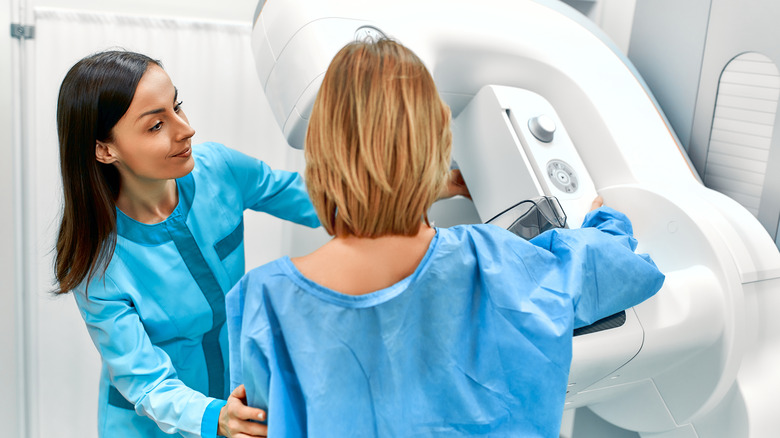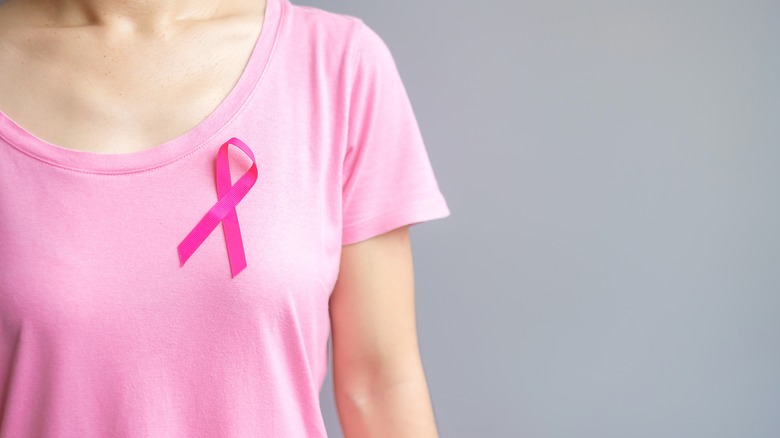Why Researchers Are Concerned Too Few Women Are Prioritizing Mammograms
Mammograms are a test used to screen for breast cancer. They are one of the best ways to find breast cancer early, when it's easier to treat. But a new study suggests that too few women are getting mammograms regularly. According to HealthDay, a recent survey found that more than one-fifth of women ages 35 to 44 do not have plans to get a mammogram in the near future. "That to me is really concerning because we recommend mammograms starting at age 40 and these women are saying, 'Nope, I don't plan to,'" said Dr. Nikita Shah, medical oncology team leader for the Breast Cancer Center at the Orlando Health Care Institute.
Health experts aren't sure why this many women aren't concerned about their personal breast cancer risks, but they believe it may be a combination of concerns about the procedure and a lack of awareness of the disease. While mammograms can be uncomfortable, it is a short procedure that can literally save your life by detecting breast cancer early. Many clinics also offer mammograms for as little as 20 or 30 dollars during Breast Cancer Awareness Month in October.
What you need to know about breast cancer
Breast cancer is a type of cancer that affects the breasts. According to Mayo Clinic, it can develop in different parts of the breast, and can be either non-invasive (where the cancerous cells have not spread beyond the breast tissue) or invasive (where the cancerous cells have spread to other parts of the body). There are several risk factors for developing breast cancer, including genetic predisposition, family history, personal history of breast cancer, certain lifestyle choices, and certain medical conditions.
Treatment for breast cancer may include surgery, radiation therapy, chemotherapy, and/or hormone therapy. The prognosis for breast cancer varies depending on the stage of the disease, the type of cancer, and the individual patient. Early detection and treatment of breast cancer can improve the chances of survival (via Carol Milgard Breast Center). If you or someone you know has been diagnosed with breast cancer, it is important to seek medical advice from a qualified healthcare professional. There are many resources available to help individuals and families cope with breast cancer. These resources can provide support, information, and practical advice on dealing with breast cancer.


